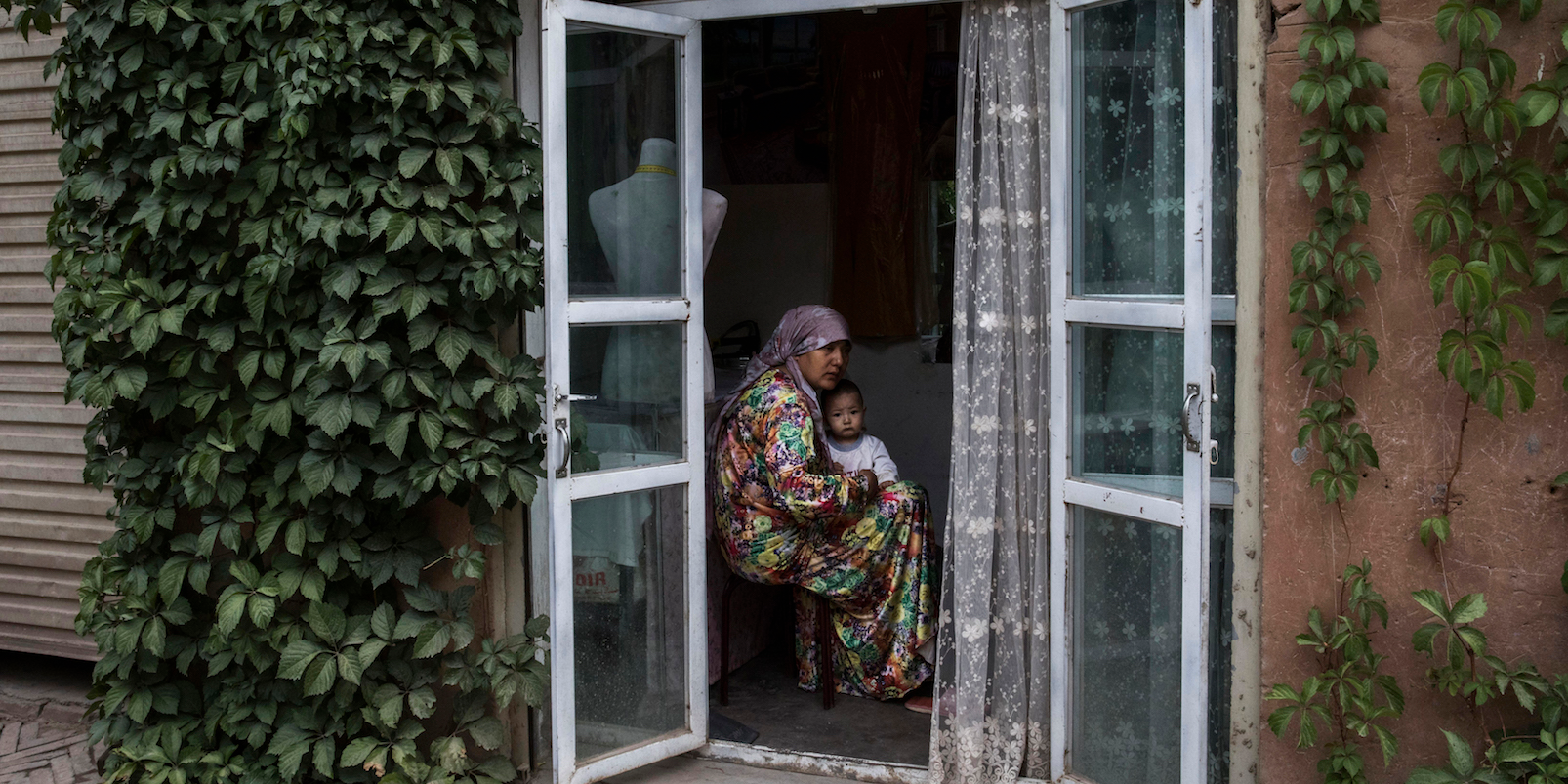- The International Consortium of Investigative Journalists published pages of leaked Chinese Communist Party documents illustrating its mass crackdown on Uighur Muslims last month.
- The consortium said only that it received the explosive cache “via a chain of exiled Uighurs.”
- On Saturday a 46-year-old Uighur Dutch woman named Asiye Abdulaheb revealed herself to the Netherlands’ De Volkskrant newspaper and The New York Times as being involved in the dissemination of those documents.
- Her social media and email accounts were hacked, and she got a death threat on Facebook Messenger, the newspapers reported. Her ex-husband was also lured to Dubai and asked by Chinese agents to spy on her.
- These reported threats mirror those experienced by other Uighur exiles.
- Visit Business Insider’s homepage for more stories.
A Uighur Dutch woman has revealed herself as being involved in the leak of an explosive cache of documents outlining how the Chinese government rounds up, detains, and controls its Muslim minority in the western region of Xinjiang.
The 24 pages of internal Communist Party documents, leaked to the International Consortium of Investigative Journalists (ICIJ), had described brutal security controls in detention camps and the reasons officials cite to detain Uighurs.
Asiye Abdulaheb, a 46-year-old Dutch citizen, has now publicly said that she helped spread those documents. She gave her first interview to De Volkskrant, a daily newspaper in her country, and subsequently spoke to The New York Times. Both articles were published Saturday.
BREAKING: Uyghur who leaked #ChinaCables goes public. She received threats to be "cut into pieces", her husband was lured to Dubai by Chinese state security, told to spy on her.
Reads like a thriller. I had the privilege of being part of this story. https://t.co/7scJIkNBaH— Adrian Zenz (@adrianzenz) December 7, 2019
According to both newspapers, Abdulaheb had received the documents electronically in June, and tweeted the screenshot of one of the pages shortly afterward. Adrian Zenz, a leading Xinjiang researcher, and another expert on the region later contacted her and put her in touch with a journalist, The Times reported.
Abdulaheb declined to say how she got the documents, De Volkskrant and The Times reported. All the documents contained stamps and letterheads of various Chinese authorities.
The ICIJ on Saturday declined to say whether Abdulaheb was the source of its report, saying it does not comment on its sources. It also cited Zenz as saying that he did not give ICIJ the documents. Earlier in November, the journalism network said they received the documents "via a chain of exiled Uighurs."
China brushed off the leaks as fabrications and attempted smears by Western countries, and continued to defend the country's tactics in the region.

Abdulaheb said she and her family have been receiving threats online and in real life since June, shortly after she posted the tweets, the newspapers reported. She has an ex-husband - a fellow Uighur exile and naturalized Dutch citizen - and two young children in the Netherlands.
Below are some of the threats she and her family had received, according to De Volkskrant and The Times:
- Several of her social media accounts and a Hotmail email got hacked.
- She received a message in the Uighur language on Facebook Messenger that said: "If you don't stop, you'll end up cut into pieces in the black trash can in front of your doorway."
- In early September, an old Xinjiang friend of her ex-husband, Jasur Abibula, contacted him out of the blue and invited him on a trip to Dubai for free. Abibula was met by his friend and several Han Chinese security officials. Han is the dominant ethnic group of China.
- The officers then told Abibula about the documents, interrogated him about his ex-wife, and gave him a USB stick to put into her laptop - in other words, tried to recruit him as a spy. They also showed Abibula cellphone videos of his elderly mother in Xinjiang, suggesting they had access to his family back home.

She is making public her involvement in the leaks to protect her family, both newspapers said. Any new threats or attacks on her "will become a new story," Zenz told The Times.
"I can handle pressure well, but I'm afraid that something will happen to my children and their father," she told De Volkskrant.
The Times said it could not independently verify the threats outlined by Abdulaheb. However, they mirror reports by other members of the Uighur diaspora, who have described to Business Insider receiving mysterious automated phone calls and sinister comments from Chinese-speaking strangers on Facebook and in real life.
Uighur exiles have also told Business Insider that their relatives in Xinjiang have vanished days after speaking out against China's human-rights record.
The Chinese government has come under increasing scrutiny for its mass oppression of the Uighurs in recent weeks. The House last week overwhelmingly passed a bill to sanction and condemn China over the crackdown. It is being passed back to the Senate for changes.
- Read more:
- Mysterious automated calls, vanished relatives, and sinister Facebook comments: How China intimidates Uighurs who don't even live in the country
- Devastating leaks have deprived China of its main strategy to deflect mounting evidence of its mass oppression of Uighur Muslims
- Maps show 500 suspected 're-education' camps and prisons in Xinjiang
- China used a file-sharing app to round up 40,000 Uighur Muslims for prison camps, a startling insight into how it oppresses people via technology

